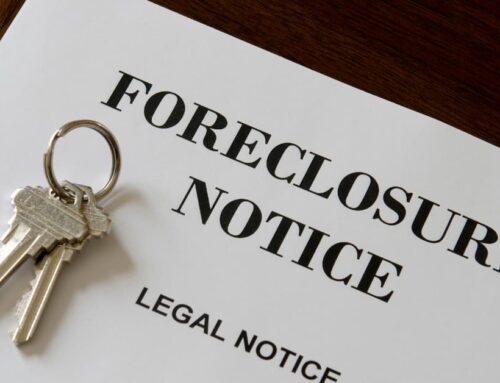The financial challenges of homeownership can sometimes feel overwhelming. For many homeowners, an unexpected job loss, medical expenses, or changes in financial circumstances can make it difficult to keep up with mortgage payments. When this happens, two common options come into focus: short sale vs foreclosure.
Understanding the key differences between short sale vs foreclosure is essential for navigating these complex situations. Each option has unique legal, financial, and emotional consequences, and choosing the right path can significantly impact your future. If you’re facing these challenges, the real estate attorneys at Kelly Legal Group can provide the legal expertise and guidance you need to make informed decisions.
Key Takeaways:
- A short sale allows you to sell your home for less than the mortgage balance with lender approval, often minimizing credit damage and avoiding foreclosure.
- A foreclosure is a lender-driven process where the property is taken due to non-payment, leading to severe credit consequences and loss of control.
- Both options have significant financial, legal, and emotional implications, and the right choice depends on your specific circumstances.
- Alternatives to short sale and foreclosure, such as loan modifications or forbearance agreements, can provide additional pathways to avoid losing your home.
- Legal expertise is critical for navigating the complexities of short sales, foreclosures, and other options to ensure your rights are protected.
Now that you understand what this blog will cover, let’s dive into the definitions of short sale and foreclosure, as well as their implications, to help you make the best decision for your situation.
What is a Short Sale?
A short sale occurs when a homeowner sells their property for less than the remaining balance on their mortgage, with the lender’s approval. While this process may sound straightforward, it involves careful negotiation and thorough documentation to ensure all parties—especially the lender—agree to the terms.
Short sales can be an effective way to avoid the more severe consequences of foreclosure, such as eviction and long-lasting credit damage. However, they require homeowners to take a proactive approach to their financial challenges.
Key Features of a Short Sale:
- Lender Involvement is Crucial: A short sale cannot proceed without the mortgage lender’s consent. The lender must approve the sale price and agree to forgive the remaining loan balance or settle for a reduced amount.
- Credit Impact is Reduced: While a short sale will still negatively affect your credit score, the impact is typically less severe than a foreclosure.
- Avoids the Foreclosure Process: A short sale allows homeowners to retain some control over the sale of their property, avoiding the stigma and stress of foreclosure.
- Potential Tax Implications: In some cases, forgiven debt from a short sale may be considered taxable income. Legal guidance can help you understand these implications.
Short sales are often appropriate for homeowners experiencing financial hardship, particularly those who owe more on their mortgage than the home’s current market value. However, navigating a short sale requires expertise in real estate law to manage lender negotiations, paperwork, and potential legal pitfalls.
What is a Foreclosure?

Foreclosure is the legal process by which a lender reclaims ownership of a property after the homeowner fails to make mortgage payments. This process typically begins when a borrower defaults on their loan, leading the lender to initiate proceedings to recover their financial losses.
Unlike a short sale, foreclosure is not voluntary. Homeowners lose their property, and the lender typically sells it through a public auction to recoup the remaining loan balance.
Key Features of a Foreclosure:
- Lender-Initiated Process: Foreclosures are driven by the lender, leaving little room for homeowner negotiation once the process begins.
- Severe Credit Consequences: A foreclosure can remain on your credit report for up to seven years, making it challenging to secure future loans or even rental housing.
- Eviction and Deficiency Judgments: Foreclosure often results in the homeowner being evicted. In some cases, lenders may pursue a deficiency judgment to recover the difference between the sale price and the remaining loan balance.
- Stressful and Time-Consuming: While some states have non-judicial foreclosure processes that proceed quickly, others require judicial foreclosures, which can involve lengthy court proceedings.
Foreclosure is often a last resort due to its significant financial and emotional impact. Homeowners facing foreclosure should seek legal counsel to understand their rights and explore alternatives.
The Emotional Toll of Short Sale vs Foreclosure
Financial difficulties often come with significant emotional stress, and the decision between a short sale and foreclosure can add to that burden. Each option impacts homeowners differently on an emotional level.
Short Sale: A Sense of Control
A short sale, though challenging, offers homeowners a sense of agency. By actively participating in the sale process, you retain some control over your situation. This can provide closure and dignity, making it easier to move forward emotionally.
Foreclosure: Feelings of Loss and Helplessness
Foreclosure often feels more traumatic because it is lender-driven. Homeowners may feel powerless as they lose their home and face public auction or eviction. The stigma of foreclosure can further compound emotional stress, leaving a lasting impact.
Key Differences Between Short Sale vs Foreclosure
When considering short sale vs foreclosure, it’s essential to understand their differences to choose the option that best fits your circumstances.
1. Impact on Credit Scores
A short sale generally results in a smaller drop in credit score compared to foreclosure. While both will appear on your credit report, lenders often view short sales more favorably since they reflect a proactive effort to resolve financial difficulties.
2. Future Loan Opportunities
Homeowners who complete a short sale may be eligible to apply for a new mortgage sooner than those who go through foreclosure. Depending on the lender and loan type, you may qualify for a mortgage within two years after a short sale, compared to seven years following foreclosure.
3. Process Control
Short sales allow homeowners to maintain some control over the sale of their property, including selecting a buyer and negotiating terms. In contrast, foreclosures are entirely lender-driven, often leaving homeowners feeling powerless.
4. Emotional and Practical Consequences
Foreclosure can be emotionally draining due to the stress of eviction, public auctions, and long-lasting financial consequences. Short sales, while still challenging, offer an opportunity to move on with dignity and potentially avoid eviction.
5. Legal Considerations
Short sales involve negotiating with lenders to forgive the remaining mortgage balance, which can be legally complex. Foreclosures, on the other hand, often result in legal battles over deficiency judgments, especially in states that allow lenders to pursue additional funds after a foreclosure sale.
Alternatives to Short Sale vs Foreclosure
If you’re unsure about pursuing a short sale or foreclosure, it’s worth exploring alternative solutions that may help you retain your property, stop a foreclosure, or minimize financial damage.
1. Loan Modification
A loan modification involves renegotiating the terms of your mortgage with your lender. This could include lowering the interest rate, extending the loan term, or reducing the principal balance. Loan modifications can make monthly payments more manageable and help you stay in your home.
2. Forbearance Agreements
Forbearance agreements allow homeowners to reduce or pause mortgage payments temporarily. While this is not a long-term solution, it can provide relief during financial hardship and help you avoid foreclosure.
3. Deed in Lieu of Foreclosure
In some cases, a lender may agree to accept the deed to your property in exchange for forgiving the remaining mortgage balance. This option avoids the foreclosure process but still requires leaving the home.
Legal Pitfalls to Watch for in Short Sales

While short sales can be a better alternative to foreclosure, they are not without risks. Legal complications often arise, such as:
- Deficiency Balances: Even if the lender approves the short sale, they may pursue a deficiency judgment to recover the remaining balance of the mortgage.
- Fraud Risks: Short sales attract scams, where fraudulent buyers or agents exploit distressed homeowners.
- Complex Lender Negotiations: Some lenders require extensive documentation, creating delays or even rejecting short sale offers.
Kelly Legal Group helps clients navigate these pitfalls, ensuring every short sale is handled with precision and transparency.
Short Sale vs Foreclosure: How Kelly Legal Group Can Help
Navigating the challenges of a short sale or foreclosure is not something you should face alone. At Kelly Legal Group, we provide expert legal guidance tailored to your unique situation, helping you make informed decisions and achieve the best possible outcome.
Here’s how we can assist you:
- Short Sale Negotiations: We work with lenders to negotiate favorable terms, ensuring the process is as smooth and efficient as possible. Our team also handles all legal documentation to protect your interests.
- Foreclosure Defense: If you’re facing foreclosure, we can represent you in court, explore alternatives like loan modifications, and fight for your rights as a homeowner.
- Legal Advice You Can Trust: Our experienced attorneys assess your financial situation, explain your options in detail, and guide you toward the solution that best aligns with your goals.
At Kelly Legal Group, we understand that every homeowner’s story is different. Whether you’re considering a short sale vs foreclosure, we’re here to provide compassionate, knowledgeable support every step of the way.
Take Control of Your Financial Future with Kelly Legal Group
When faced with financial difficulties, the choice between short sale vs foreclosure can feel overwhelming. However, with the right legal guidance, you can navigate these challenges and take steps toward a brighter financial future.
Short sales offer a path to avoid foreclosure, minimize credit damage, and move forward with dignity. Foreclosures, while sometimes unavoidable, require a strong legal strategy to protect your rights and mitigate long-term consequences.
Don’t face these challenges alone. Kelly Legal Group is here to help you understand your options, negotiate with lenders, and protect your financial future. Contact us today to schedule a consultation and take the first step toward regaining control of your finances.
Frequently Asked Questions About Short Sale vs Foreclosure
1. What is the main difference between a short sale and foreclosure?
The key difference lies in control. A short sale is a homeowner-initiated process where the property is sold for less than the mortgage balance, with lender approval. In contrast, foreclosure is a lender-driven process where the property is repossessed and sold to recover losses after the homeowner defaults. While both affect credit, a short sale often reflects a proactive effort, whereas foreclosure indicates financial distress.
2. Does a short sale hurt your credit less than a foreclosure?
Yes, a short sale typically has a smaller impact on your credit score compared to foreclosure. Foreclosures can remain on your credit report for up to seven years, significantly impacting your ability to secure future loans. A short sale, however, signals to lenders that you took steps to resolve financial difficulties, making it less damaging in the long term.
3. Can I negotiate with my lender during a short sale?
Absolutely. Short sales require lender approval, and negotiation is a critical part of the process. You can negotiate the sale price, forgiveness of the remaining mortgage balance, and even additional terms. A skilled real estate attorney can help strengthen your case, ensuring you secure the most favorable terms possible.
4. Are there alternatives to short sales and foreclosure?
Yes, alternatives like loan modification, forbearance agreements, or deed in lieu of foreclosure can help homeowners avoid the severe consequences of foreclosure. Each option has its own eligibility criteria and implications, so consulting with an attorney can help you identify the best solution for your unique situation.
5. What are the risks of pursuing a short sale?
While short sales can be a better alternative to foreclosure, they are not without risks. Deficiency balances may leave you financially responsible for the unpaid mortgage amount. Fraud risks, such as scams targeting distressed homeowners, can also arise. Additionally, the negotiation process with lenders can be complex and time-consuming. Partnering with a trusted attorney helps mitigate these risks and ensures the process runs smoothly.






